If,

Amitabha’s vow
by Gary Snyder
“If, after obtaining Buddhahood, anyone in my land
gets tossed in jail on a vagrancy rap, may I
not attain highest perfect enlightenment.
wild geese in the orchard
frost on the new grass
“If, after obtaining Buddhahood, anyone in my land
loses a finger coupling boxcars, may I
not attain highest perfect enlightenment.
mare’s eye flutters
jerked by the lead-rope
stone-bright shoes flick back
ankles trembling: down steep rock
“If, after obtaining Buddhahood, anyone in my land
can’t get a ride hitch-hiking all directions, may I
not attain highest perfect enlightenment.
wet rocks buzzing
rain and thunder southwest
hair, beard, tingle
wind whips bare legs
we should go back
we don’t
***
(Thank you, Brian)
Then It is Time
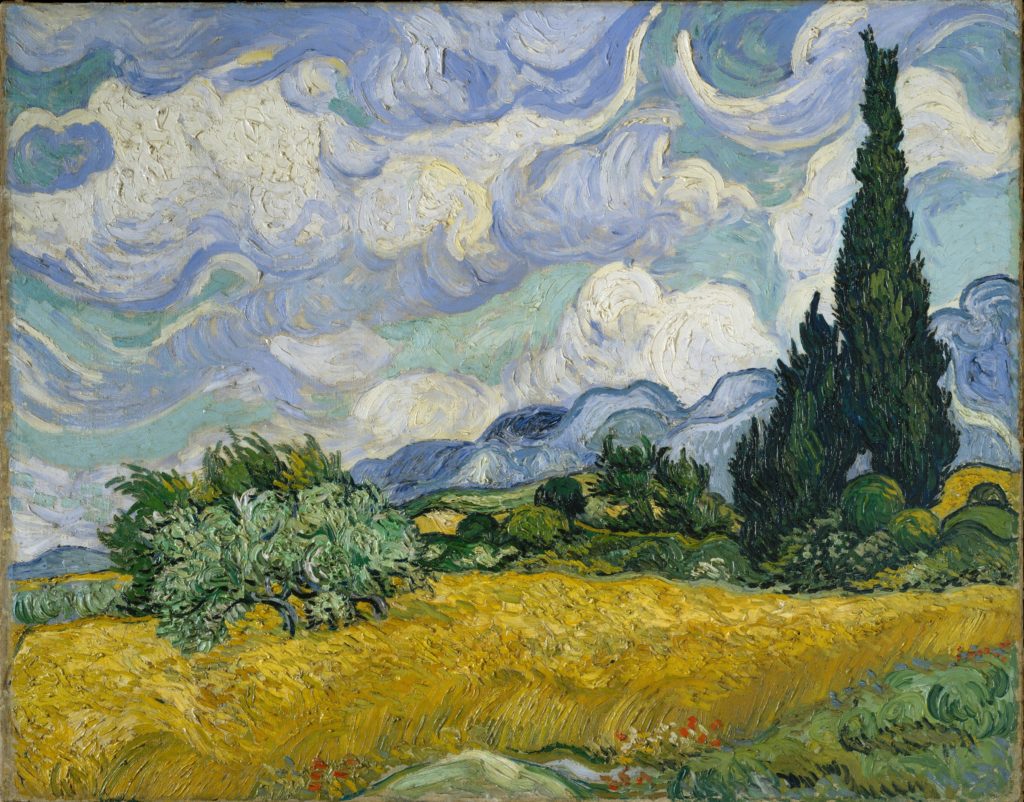
Also Known As
by Jim Moore
published in The Sun, May 2019 issue
If you are more close to the dying
than you would like to be, then it is time for the sky
to grow larger than the earth, than the sea even.
You need to go to that place where your story
is seriously quiet. Nothing in it counts
compared to the things the sky
calls out to: birds, clouds, the occasional cypress
that has reached beyond itself.
You could call it a kind of waiting
and that would be fair. There is a green bench
— a corner of heaven, you could say —
and there you can sit in the shade
and watch the grandfather and grandson walk by,
hand in hand. The little one makes the older one laugh
again and again, and that is the way it works
in heaven. Also known as going home.
Also known as getting over yourself.
This is What Matters to Me
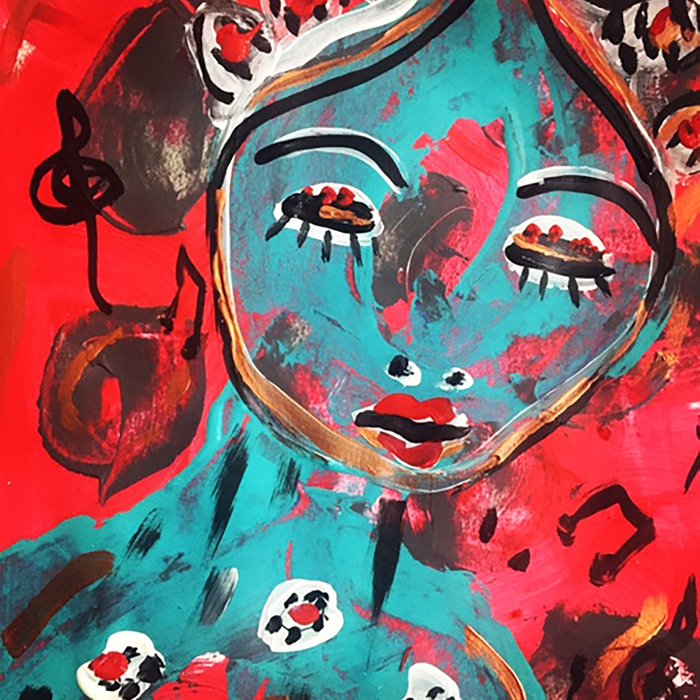
For those of you who were at Sangha this past Sunday, here is the “Write This Down” list I promised from Phillip Moffitt’s closing night talk at the Advanced Practitioner retreat:
- Know for yourself and remember: This is what matters.
- Be clear as to your aspiration: If this is what matters, then my aspiration is to be in relation to it in this particular way.
- Act with intention: My goals and the means for reaching those goals may change, but my moment-to-moment intention is based on my values — and these do not fluctuate.
- Maintain the commitment: Living an intentional life requires commitment, which I will cultivate in this particular way.
It was quite extraordinary to have a teacher say: “Write this down” in the middle of a dharma talk! So I’m inspired to take it on:
- This is what matters to me: A calm, clear mind and a peaceful loving heart.
- This is what I aspire to: Freedom from “Judging Mind.”
- This is what my intention is: To act with kindness and goodwill, as best I am able.
- This is how I will maintain my commitment: Practice daily (Year of Getting to Know Goodwill); deepen practice by going on retreats; meet regularly with a wise and caring teacher (Phillip).
***
What matters to you?
Toward Which My Journey Tends
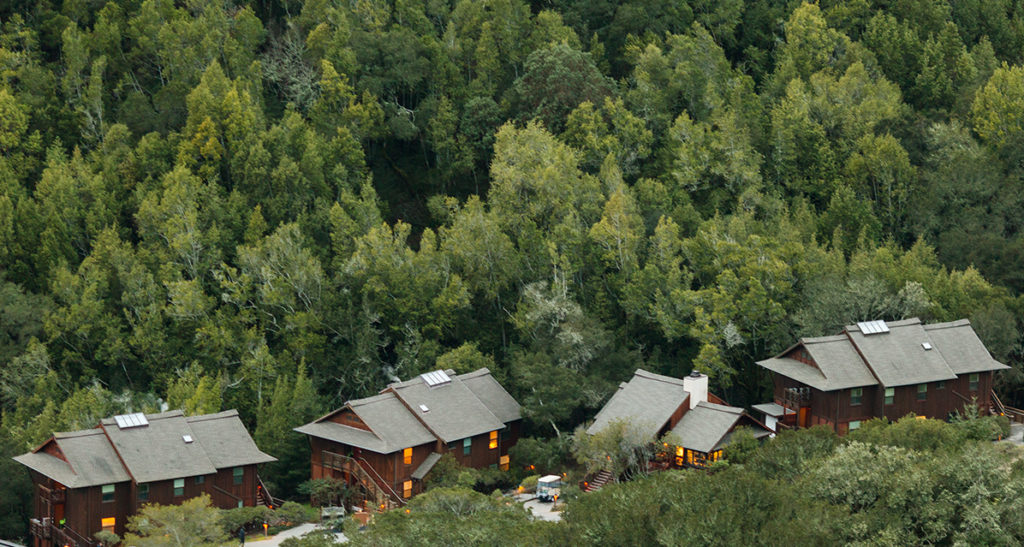
I leave Monday morning for the Nature of Awareness retreat at Spirit Rock (pictured above) and I won’t be posting again till the week of April 29.
To tide you over, I offer this excerpt from my favorite armchair travel guide — Invisible Cities, by Italo Calvino:
The Great Khan’s atlas contains also the maps of the promised lands visited in thought but not yet discovered or founded: New Atlantis, Utopia, the City of the Sun, Oceana, Tamoe, New Harmony, New Lanark, Icaria.
Kublai asked Marco: “You, who go about exploring and who see signs, can tell me toward which of these futures the favoring winds are driving us.”
“For these ports I could not draw a route on the map or set a date for the landing. At times all I need is a brief glimpse, an opening in the midst of an incongruous landscape, a glint of lights in the fog, the dialogue of two passersby meeting in the crowd, and I think that, setting out from there, I will put together, piece by piece, the perfect city, made of fragments mixed with the rest, of instants separated by intervals, of signals one sends out, not knowing who receives them. If I tell you the the city toward which my journey tends is discontinuous in space and time, now scattered, now more condensed, you must not believe the search for it can stop. Perhaps while we speak, it is rising, scattered, within the confines of your empire; you can hunt for it, but only in the way I have said.”
Already the Great Khan was leafing through his atlas, over the maps of the cities that menace in nightmares and maledictions: Enoch, Babylon, Yahooland, Butua, Brave New World.
He said: “It is all useless, if the last landing place can only be the infernal city, and it is there that, in ever-narrowing circles, the current is drawing us.”
And Polo said: “The inferno of the living is not something that will be; if there is one, it is what is already here, the inferno where we live every day, that we form by being together. There are two ways to escape suffering it. The first is easy for many: accept the inferno and become such a part of it that you can no longer see it. The second is risky and demands constant vigilance and apprehension: seek and learn to recognize who and what, in the midst of the inferno, are not inferno, then make them endure, give them space.”
I am Delighted
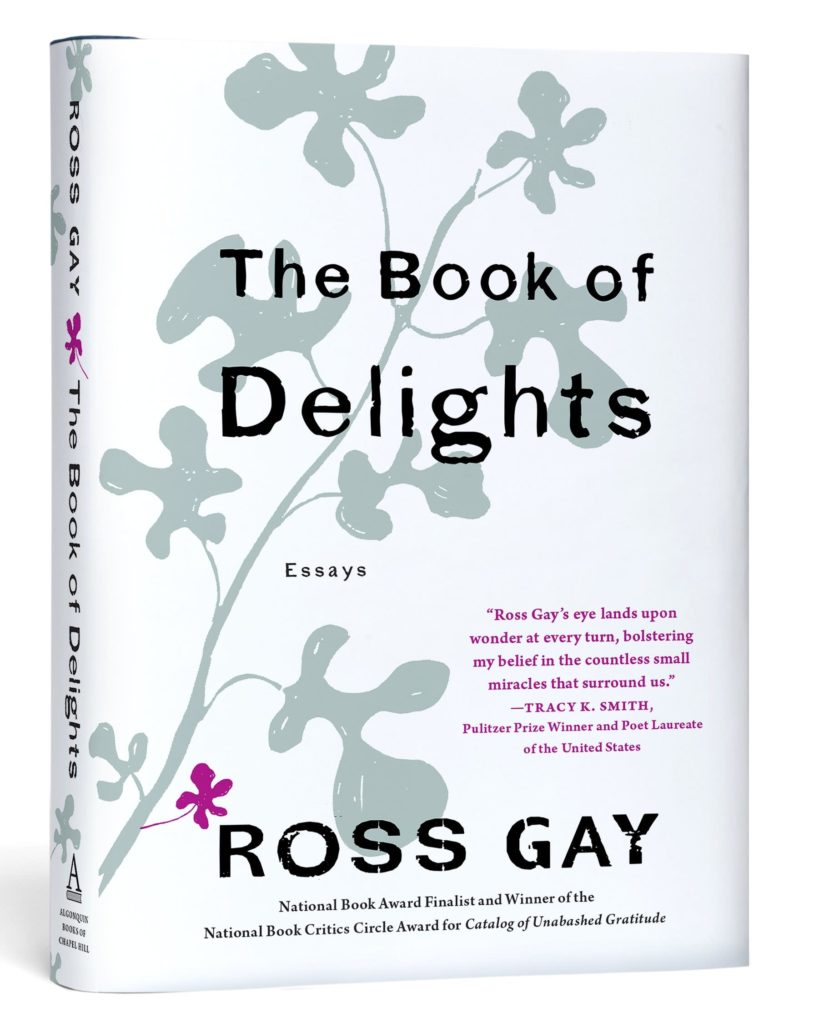
Last night a friend gave me The Book of Delights, by poet Ross Gay, which (so far) seems to be one of the most Buddhist non-Buddhist books I’ve ever come across, beginning with the concept for the book — which is a PRACTICE — that I think I’m going to try to take on (with some adjustment).
Gay writes: “One day last July, feeling delighted and compelled to both wonder about and share that delight, I decided that it might feel nice, even useful, to write a daily essay about something delightful. I remember laughing to myself for how obvious it was. I could call it something like The Book of Delights.
“I came up with a handful of rules: write a delight every day for a year; begin and end on my birthday, August 1; draft them quickly; and write them by hand. The rules made it a discipline for me. A practice. Spend time thinking and writing about delight every day.”
*** Not sure how contemplating “delight” fits into Buddhist practice? Stay tuned for my next series of Study & Practice classes! (Details coming soon.) ***
Gay’s first entry begins: “It’s my forty-second birthday. And it would make perfect (if self-involved) sense to declare the day of my birth a delight, despite the many years I’ve almost puritanically paid no attention to it. A sad performance of a certain masculine nonchalance, nonflamboyance? Might’ve been, poor thing. Now it’s all I can do not to bedeck myself in every floral thing imaginable–today both earrings and socks.
“Oh! And my drawers, hibiscus patterned, with the coddling pocket in front to boot. And if there’s some chance to wear some bright and clanging colors, believe me. Some bit of healing for my old man, surely, who would warn us against wearing red, lest we succumb to some stereotype I barely even know. (A delight that can heal our loved ones, even the dead ones.) Oh broken. Oh beautiful.
“So let me first say, yes, mostly, the day of my birth is an utter and unmitigated delight, and not only for the very sweet notes I sometimes get that day–already five by 8:15am, from Taiwan, the Basque Country, Palo Alto, Bloomington, and Frenchtown, New Jersey–but also for the actual miracle of a birth, not just the beautifully zany and alien and wet and odorous procedure that is called procreation, but for the many thousand–million!–accidents–no, impossibilities!–leading to our births.
“For god’s sake, my white mother had never even met a black guy! My father failed out of Central State (too busy looking good and having fun, so they say), got drafted, and was counseled by his old man to enlist in the navy that day so as not to go where the black and brown and poor kids go in the wars of America. And they both ended up, I kid you not, in Guam. Black man, white woman, the year of Loving v. Virginia, on a stolen island in the Pacific, a staging ground for American expansion and domination. Comes some babies, one of them me. Anyway, you get it; the older I get–in all likelihood closer to my death than to my birth, despite all the arugula and quinoa–the more I think of this day as a delight.”
***
It goes on — delightfully — from there. Go get the book! And while you’re at it, get two (or more) and give them to friends. They will love you for it.
(Thank you, Brian!)
Speaking as an Uninstructed Worldling…

It looks like tonight will be the final time our KM (Kalyana Mitta) group will meet to discuss Bhikkhu Bodhi’s In the Buddha’s Words, which we’ve been doing twice a month now for several years!
In honor of the occasion I offer this quote from the final chapter (The Planes of Realization), which includes Bhikkhu Bodhi’s oddly science-fiction-invoking term: “uninstructed worldling” — more prosaically translated as “run-of-the-mill person”:
“The purpose of the Buddha’s path is to lead uninstructed worldlings to the attainment of the Deathless, and the stages of realization are the steps toward the completion of this process…
“To reach the attainment of stream-enterer [first level of realization], the aspiring disciple should cultivate the ‘four factors leading to stream-entry’, which are:
“Associating with wise and virtuous spiritual guides; listening to the true Dhamma; attending carefully to things; and practicing in accordance with the Dhamma.”
***
Sounds do-able to this uninstructed worldling!
Notice What Your Mind Isn’t Landing On
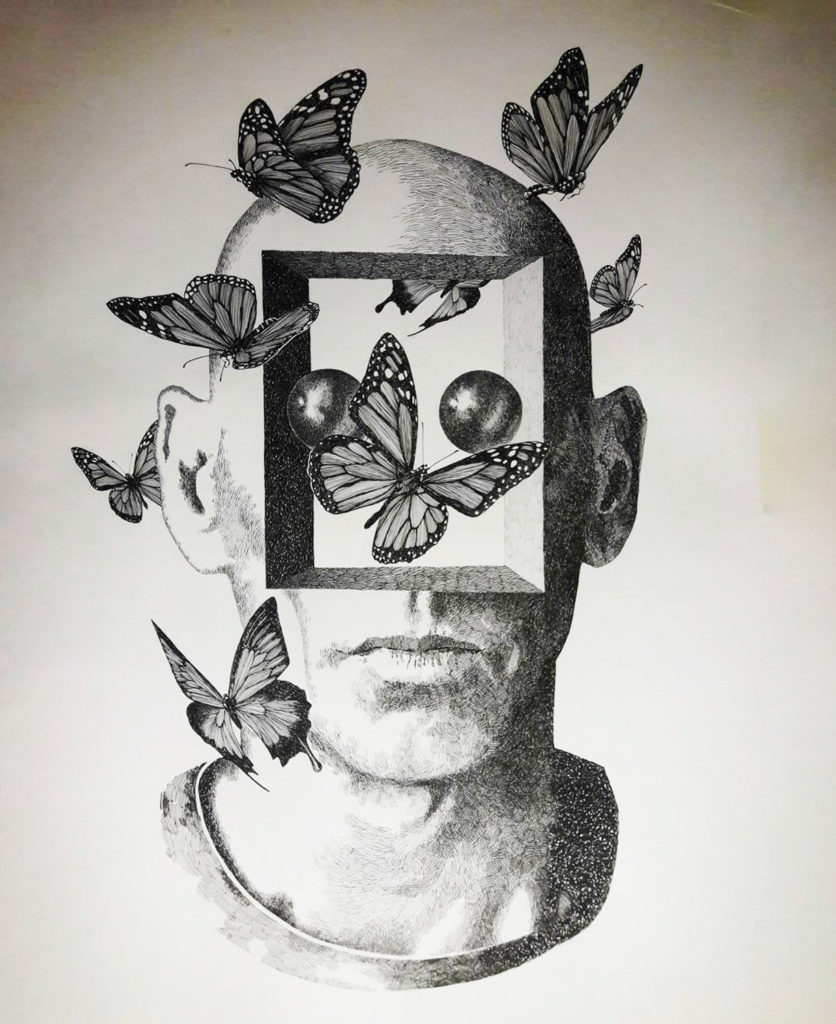
In preparation for the Advanced Practitioner Retreat on the Nature of Consciousness that some of my CDL Buddies and I are getting ready to attend, I offer this “very, very highly compressed teaching” from Ajahn Sucitto’s talk, Resetting Your World (at about the 24-minute mark):
“We can know how to discharge the contact impression that presses on us, that pushes us. We can know how to receive that and discharge: don’t jump on it, don’t worry about it, don’t proliferate about it. Just discharge. Have we known that? Have we recognized that? This is where contact does not ignite. Does not flash. Does not trigger.
“No triggering, no perception arises. None of: oh it’s this, it’s this, it’s always this; I am that; I should be this… None of that arises.
“The thinking doesn’t go on around how to deal with it or why one has it or how to stop being it. So there is an ending of the suffering.
“When you see [in the teachings] something like: where there is no mind… It’s: WHERE there is no mind. It doesn’t say: there IS NO mind, no mental functions… It means: In the instance where there isn’t that — notice what your mind ISN’T landing on.”
***
This is quite a talk. I posted an excerpt from it a few weeks ago in a post titled: The Very Essence of Being Consciousness. Click here for the talk, which bears repeated listening. Click here for the posted excerpt.
Unique to You, but Not You

In celebration of getting to meet with my teacher and mentor Phillip Moffitt very soon, I offer this excerpt from his book on self development, Emotional Chaos to Clarity, a longer section of which was just posted on the Spirit Rock website (here).
“When I teach meditation students about the ways identity is created, I encourage them to think about false identity in terms of what I call the myth of fingerprints. On the surface it may seem that we are separate and isolated from one another, but this is only a partial truth that obscures the larger truth that we are all interconnected. Yes, your fingerprints are different from mine and from everyone else’s, but we all have fingers, which we use in similar ways. Thus, in knowing what it means to have fingers, we discover that what we have in common is more important than our differences. The dissimilarity of our fingerprints isn’t what’s important but how we use our fingers. Do we use them for building and creating beauty or do we use them to cause harm?
“The same is true of your emotional history. It is uniquely yours, but others also experience the joy, anger, excitement, fear, and love that you feel. Your emotional history doesn’t make you a separate species; it is simply one of the endless ways that human beings manifest the emotions they share.
“You too may struggle to understand your authentic self. For instance, you may unconsciously assume that you are the collection of old habits of mind that you’ve accrued over your lifetime in reaction to difficulty, disappointment, and uncertainty. You may believe you are someone who is anxious because as a child you had to endure a constant stream of criticism from your parents. Or you may see yourself as a failure because you haven’t achieved your career goals. But these conditioned mind states are not you—they are merely thoughts and feelings. These thoughts and feelings, as you can observe for yourself, are temporary and ever-changing, and arise episodically. So while they may characterize your experience sometimes, they don’t define you. Your authentic self is defined by the values from which you respond to these mind states.” (continue reading here)
Consoling but Costly
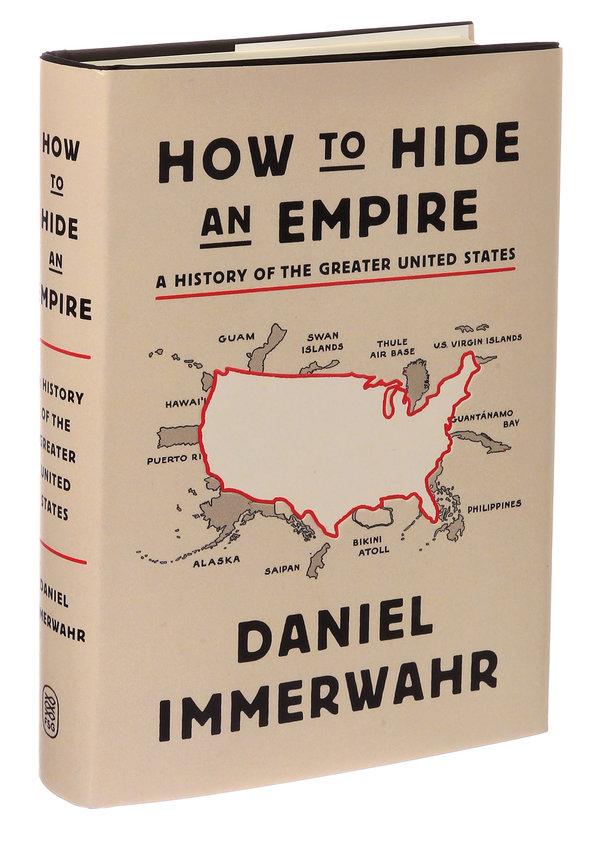
The next book my CDL White Awake group will be discussing is How to Hide an Empire: A History of the Greater United States, by Daniel Immerwahr.
I’ve just started reading it and I can already see how little I know about the whole of my country!
Here’s an excerpt from the introduction:
“This country perceives itself to be a republic, not an empire. It was born in an anti-imperialist revolt and has fought empires ever since, from Hitler’s Thousand Year Reich and the Japanese Empire to the ‘evil empire’ of the Soviet Union. It even fights empires in its dreams. Star Wars, the saga that started with a rebellion against the Galactic Empire, is one of the highest-grossing film franchises of all time.
“This self-image of the United States as a republic is consoling, but it’s also costly. Most of the cost has been paid by those living in the colonies, in the occupation zones, and around the military bases. The ‘logo map’ has relegated them to the shadows, which are a dangerous place to live. At various times, inhabitants of the U.S. Empire have been shot, shelled, starved, interned, dispossessed, tortured, and experimented on. What they haven’t been, by and large, is seen.
“The ‘logo map’ carries a cost for mainlanders, too. It gives them a truncated view of their own history, one that excludes part of their country. It is an important part. As I seek to reveal, a lot has happened in the territories, occurrences highly relevant to mainlanders.
“The overseas parts of the United States have triggered wars, brought forth inventions, raised up presidents, and helped define what it means to be ‘American.’ Only by including them in the picture do we see a full portrait of the country — not as it appears in its fantasies, but as it actually is.”
Not Your Standard Brahma Viharas

For the past week or so, I’ve been listening every single day to Ajahn Sucitto’s guided meditation on the Brahma Viharas — which is different from any Brahma Vihara instructions I’ve ever heard before — and I just can’t keep from going back to it again and again.
The talk begins with some introductory remarks, in which he uses a lot of Pali terms (these instructions were given near the end of a month-long retreat for experienced meditators, so you’re kind of jumping into the deep end here) but starting at about the 10-minute mark, the actual guided instructions begin and it’s pretty easy going from there.
A transcript won’t do it justice. You really just have to listen (and not while you’re driving or jogging or trying to do something else!)
But I will offer this little bit as an incentive (which starts at about 37 minutes in):
“As the peripheries begin to relax a little more, the center becomes more apparent. Not exactly as a sensation, but as a quietness, where everything else isn’t. There’s a warming, and there’s a kind of an open stillness…
“This is not so easy to discern because we’re normally discerning presences rather than absences. But to the extent that there is an increase in relational space, where it’s not constricted, not intense, not frantic, not weighted down — there is an increasing lightness of being. A center. Where the praise/blame, happiness/unhappiness — where that doesn’t hit.
“And the more you’re in touch with this, the freer your volitions are. They’re less impaired by external circumstances and more like: this is just because I’m alive.
“This is what happens. When one is truly, fully alive, then these measureless abidings are just — standard. It’s the loss of them that is to be seen as a calamity.
“Whenever you can, just return to that centering… Bringing the body back…. Working into these areas so they become areas you are familiar with and you know the tonalities of and you know how to heal them…
“This is the basis that we can use. And you can refine it. Relaxing around the eyes, the throat, the mouth… So you’re not driven out to the edges of your body — like defense outposts — but staying within the center, sending good energy and goodwill throughout your territory… And then you can widen the territory.”
***
Listen to the whole talk here. Guided instructions begin at about the 10-minute mark. Enjoy!
